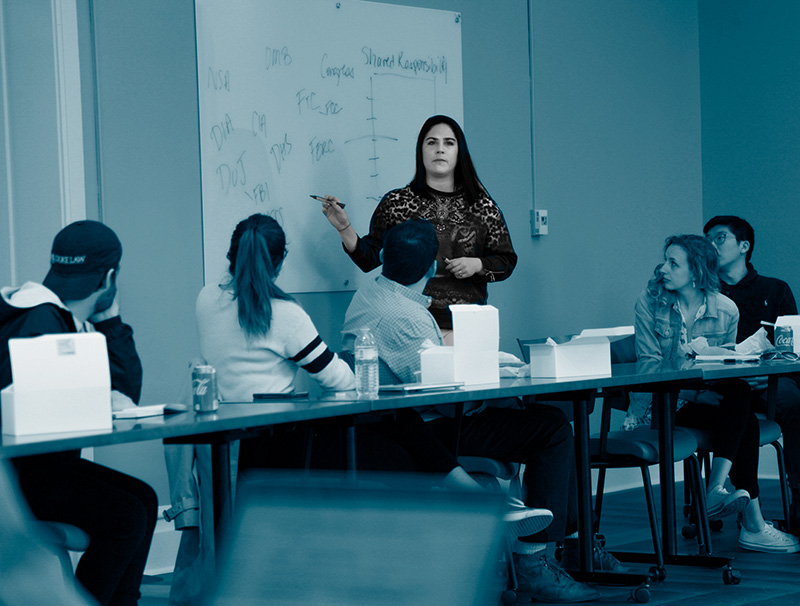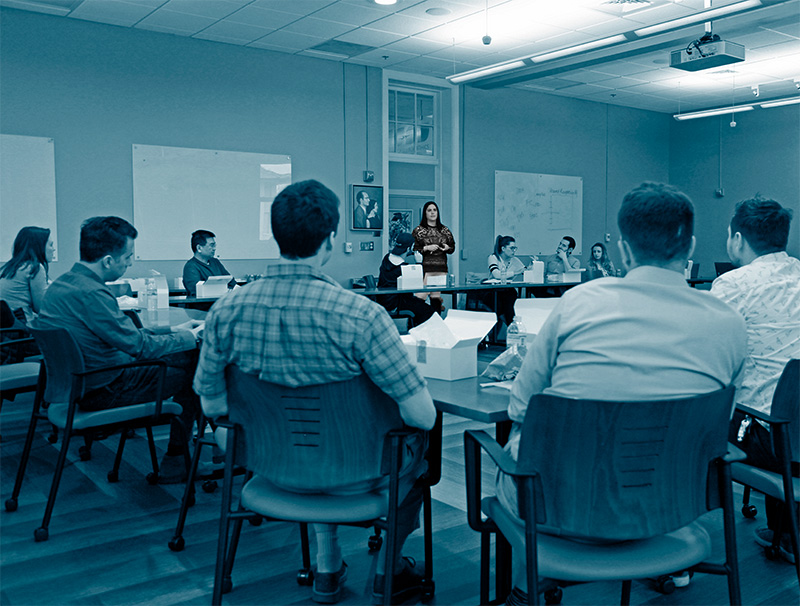Thinking Outside the Box: How to Engineer Your Own Tech Career
Baer began the working lunch session by stepping back to review the basics of cloud computing and the principle of “shared responsibility” to maintain security between providers like AWS and their client companies or government entities.
Throughout her talk, Baer shared valuable nuggets of insider advice for job hunting and career development in information technology:
- As a student, work to establish your credibility: apply for fellowships that result in a published article or op-ed.
- Think outside the box: there’s always an “option C” when engineering your career opportunities.
- Network and cultivate relationships with professors who can enthusiastically make recommendations for you.
- Proactively redefine your job responsibilities with your supervisor 6 months or a year into a new job to ensure better performance reviews.
- As you advance in your career, encourage employers to create or tailor positions to your skills.
Baer also discussed the importance of women and diverse contributors to developing better technologies and securing them. When women programmers are underrepresented or absent from project teams, the results can lack comprehensiveness and even be dangerous: Siri was recently discovered not to be able to provide resources in response to queries such as “I was raped.” In another example, the ride-sharing sevice Uber enabled GPS user-tracking by third parties, creating a very real security risk that could be exploited by abusers.
Reactions to the event were overwhelmingly positive. Caitlin Burke (G’21) from the Computational Media, Arts & Culture graduate program thought Baer’s concise suggestions and sharing of her own work experience provided new insights into job hunting in the tech sector. Kyle Levenberg (Law ’19), who asked Baer a question about the importance of diversity when hiring in IT, also hoped that more such events could be organized.


For Fall 2019, Professor Hu will offer her course, “Data & Democracy: Foreign Interference in US Elections and Cyber Ethics.”
For more information about Technically Right, visit dukeethics.org
